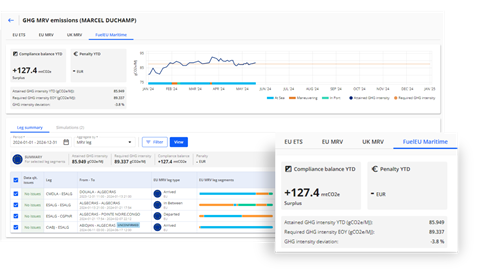StormGeo has launched a new program designed to address the demands of the FuelEU Maritime regulation for the shipping industry.

StormGeo FuelEU Maritime is the latest building block in the software company’s environmental compliance portfolio, together with IMO DCS, EU/UK MRV, CII, and EU ETS solutions. It introduces a means of monitoring compliance with the standards of the FuelEU Maritime regulations by turning onboard-reported data into validated insights about a vessel’s GHG Intensity performance. A data validation process identifies and flags reporting errors before calculating GHG intensity metrics.
It said that this process, from onboard data reporting to validation and calculation of metrics, eliminates delays in the FuelEU Maritime workflow and minimises the risks of missing deadlines.
Among the features, SormGeo said the system calculates how different fuel types will impact a vessel’s GHG intensity towards compliance standards, as well as facilitating the banking, borrowing, and pooling of compliance surplus to offset deficits and minimise penalties.
FuelEU Maritime aims to increase the share of renewable and low-carbon fuels in the fuel mix of international maritime transport in the EU; it comes into effect on January 1, 2025. It covers not only CO2 but also methane, with the intensity ratcheting up in five-year increments. For 2025, the EU has set a 2 percent reduction requirement from a defined baseline, tightening to an 80 percent reduction in 2050. FEM is not about how much fuel is burned, but rather about what is burned, while considering the greenhouse gas production footprint for any given fuel.
















